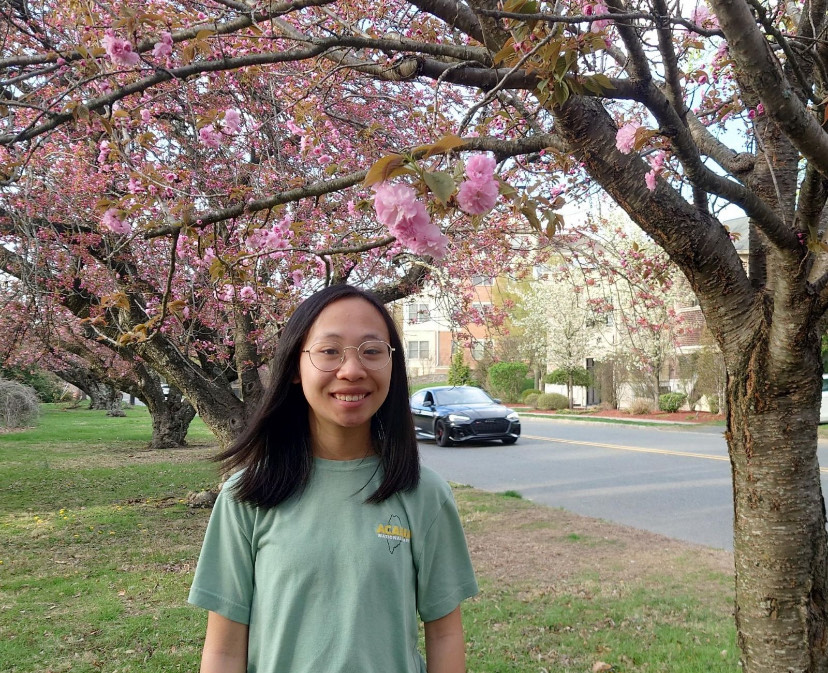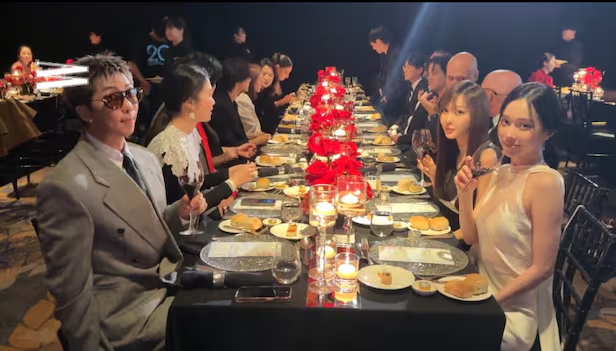The Harvard Political Review runs a seasonal journalism competition that encourages youth worldwide to polish their writing and make connections between politics and current events. The 2025 Harvard Political Review (HPR) Journalism Competition revolved around a selection of five multidimensional questions that students would answer in an 800-1200 word essay. Among the winners was Joanna Cheng (’27), who placed 3rd globally, 3rd in North America, and 2nd in the United States.
“When I saw the email [from Mr. Gardner to THS students regarding the competition], I knew I probably should partake in it,” Cheng said, explaining how she first encountered the competition. “After all, if I missed another one of these, I would feel really bad about my procrastination and lack of productivity. As a result, after a long period of agony over the price of the entrance fee, I made an AlgoEd account and set out to write an essay worth $45.”
“Entering these competitions can help students by diving deeper into a potential area of interest to them while also competing against peers from across the globe,” Mr. Gardner, the THS College Counselor, said. “Students can gain confidence as well as learn about their areas of strength/weakness in their writing and what they may be able to improve upon for future endeavors.”
On the day the results were released, Cheng had been “expecting to see just a participation award, but instead saw the words ‘runner up.’”
“I guess internally I was like, ‘yay,’ but I was just thankful that the $45 and my work, which I had forgotten about, at least was, in a sense, worth it,” Cheng recalled. “I tried not to let it get into my head.”
The competition has two categories: individual and team. For the team category, the team’s score is averaged to determine the team’s overall ranking. Cheng participated in both the individual and the team categories. Additionally, as there were five distinct prompts that the competition offered, each person was required to submit their essays to one of the five different prompts. Cheng’s essay was on the topic of astroturfing, which is the term for when a political candidate forces the illusion of public support by hiring bots or people to gain more supporters.
“For me, for better or for worse, my technique […] is making a lot of drafts and potential essays much like how a costume designer for a movie does,” Cheng said as she reflected on the necessity of choosing the right topic.
Furthermore, Cheng expressed that peer editing is one of the most helpful aspects of the writing process, recommending students to share their writing as a collaborative process.
“Peer editing is really helpful to see flaws in your argument or any rambling that you do, so thank you Soeun Lee (’27) and Marley Han (’27) for all your help,” Cheng said. “On that note, make sure that they allow peer editing. You do not want to be disqualified or feel guilty if you find out [afterward] that it was not allowed.”
Cheng also highlighted that looking for accidental plagiarism was another key to writing a successful paper.
“I always run my essays through plagiarism checkers just because I’m always scared I somehow wrote the exact same words and phrases as my predecessors even though I don’t plagiarize or use ChatGPT,” Cheng said. She then referred to Han, who was her partner for the team category. “Marley was kind enough to run hers for me, [so] definitely reserve time for that and use multiple websites.”
Cheng’s winning essay will soon be available to view on Harvard Political Review’s website. The Harvard Political Review Journalism Competition truly allowed Cheng’s writing to reach a broader audience. For those who seek to elevate their writing to newer levels, it would be important to remember Cheng’s advice: “Trying is really fun […] it’s critical to try to try.”














